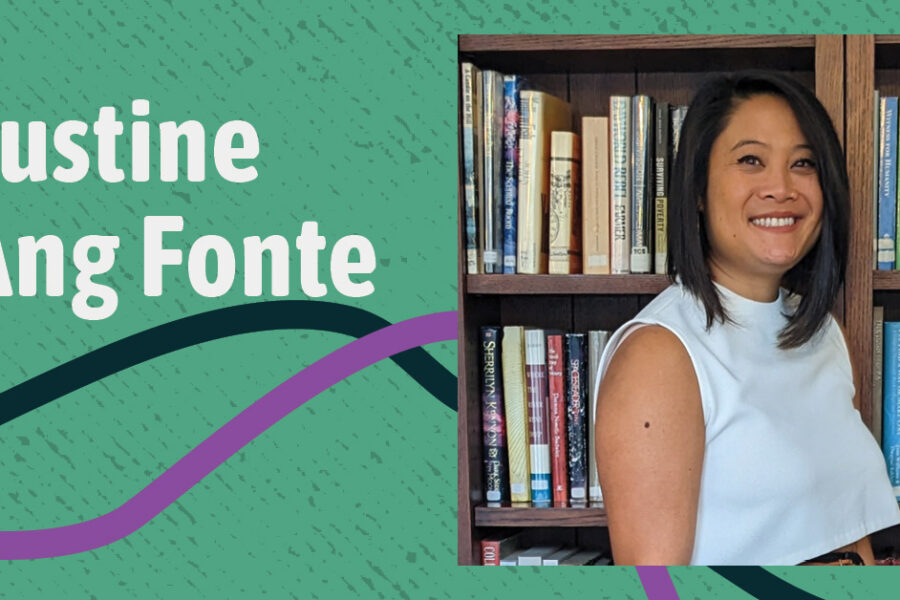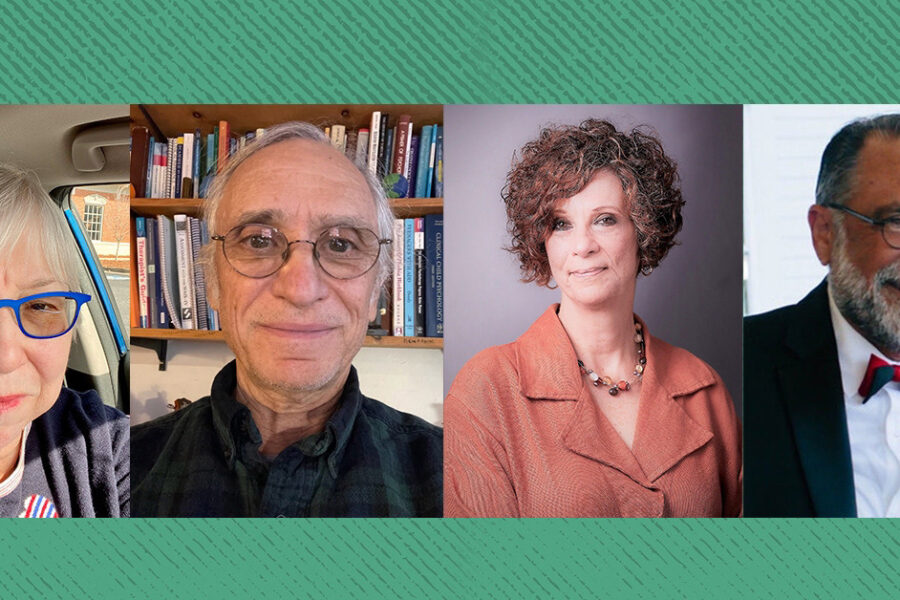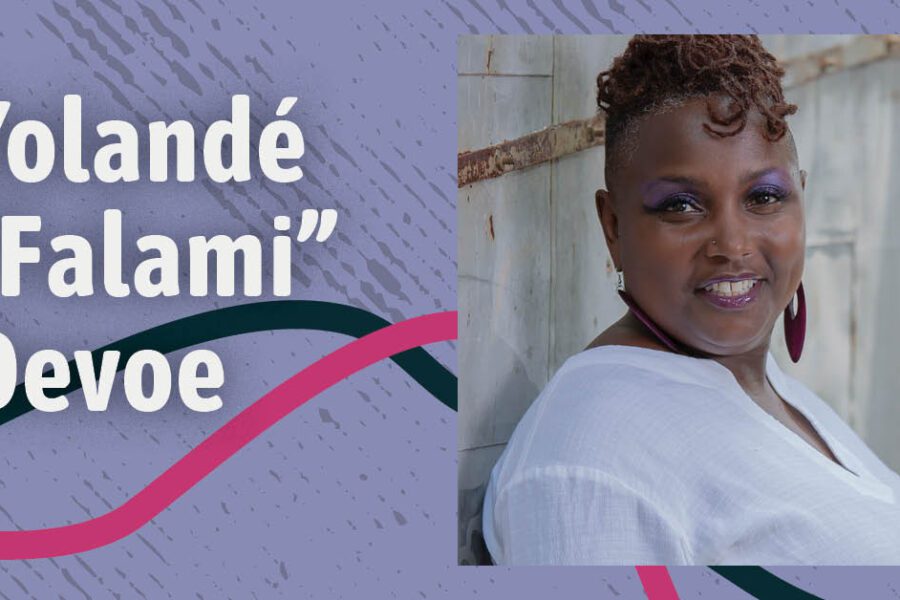The subject of school librarians and the recent declines in their numbers is not one that tends to make the front page of the newspaper or even page B-15. But that doesn’t make it any less urgent. Between 2015 and 2019, there was an almost 20% national loss in the number of full-time school librarians.
This trend represents an ongoing evolution in the structure and capacity of schools, and one of the few groups researching this change is Antioch University’s SLIDE project: ”School Library Investigation – Decline or Evolution?” This grant-funded three-year project is led by Antioch School of Education faculty Deb Kachel, herself a former high school librarian, and by the researcher Keith Curry Lance. SLIDE aims to collect data and make information about trends in the field more accessible.
“What we’re finding as we’re working with parents and business people and citizens in the community is that they have no idea that the schools no longer have school librarians,” says Kachel. “A lot of this is just bringing attention.”
Now, the SLIDE team is finding major success in bringing their findings to the wider world. This winter, the team published some of their findings in the Peabody Journal of Education. The peer-reviewed article “The School Librarian Equity Gap: Inequities Associated with Race and Ethnicity Compounded by Poverty, Locale, and Enrollment” is full of actionable research into the disappearance of librarian jobs and its effects. Now, the team is working to bring attention and action to their key finding: that “the gap between students in districts with a ‘library privilege’ and those without librarians continues to widen.”
The Scope of SLIDE
SLIDE examines the stark national decline of school library positions, the changing roles of librarians, and the expectations of school leaders. Although research showing access to school librarians has a positive impact on student achievement is well-documented, few know how important the role is outside of the school librarian community.
To do this, the team has created a suite of web-based tools that allow activists and other researchers to explore federal data and trends within it. In addition, Kachel and Lance have developed relationships with school library leaders from all fifty states and the District of Columbia in order to learn about state requirements for staffing school librarians and to push out findings from the SLIDE project to reach a national audience. These interviews are being used as a way to better understand what motivates staffing choices.
“A lot of credit goes to Deb for that because she really kept pushing for us to meet the goal of having universal support for the project,” says Lance. “We’re very proud of that.”
This data will help people committed to sharing the importance of school librarians to advocate more effectively for equitable access for students.
A Passion For Promoting Libraries
Kachel has worked in the school library world for decades in many roles: as an advocate, researcher, grant writer, and school librarian herself. Currently, she teaches online graduate courses at Antioch University’s Seattle campus in the Endorsement in K-12 Library Media program and is the project director of SLIDE.
Kachel and Lance worked tenaciously to get this project off the ground. It was only on their third application for the Institute of Museum and Library Services’s Laura Bush 21st Century Librarian Grant that they finally received funding of $349,000 to support the project over three years.
Because the grant is federally funded, Kachel and Lance can’t push for any specific advocacy work, but people have been using the data to explain why funding and policies supporting school librarians are so important. “What we have done is made this usable and said to people, ‘Okay, if you’re trying to advocate for school libraries at the State level, at a district level, at school level—here it is,’” Kachel says. “And they’ll use it.”
Before SLIDE, this data was only accessible in a vast—and for many users overwhelming—federal database. Honing in on a single district was nearly impossible. “You know how many local school districts we had data on? Over 13,000,” Lance says. “Can you imagine? I mean, it’s like asking for a sip of water and having the fire hose turned on you.”
SLIDE has become an integral part of this work for people who are advocating because it gives them a user-friendly version of this dense data. “The release of the data tools was a huge, huge, huge piece of the project. And one of the ones that we hope will have the most lasting impact,” Lance says. “We’re working on perpetuating the updating of those for as long as we can after the grant.”
“I’m really proud that we find a lot of the SLIDE findings and data quoted everywhere,” Kachel says. It’s clear to the researchers that their work is already making impacts. With just a few months left in the project, Lance and Curry are excited to see the continued ripple effects this information brings to the school library world.
Reaching Wider Audiences
The team has had some major successes getting their findings into the world. The biggest may have come this January when their research found a featured home in the pages of a special library-focused issue of the Peabody Journal of Education. This prestigious, peer-reviewed publication focuses on all facets of education, from preschool through college.
For this issue, only three research projects were chosen as features. The competition for publication was serious because it was a unique opportunity. “This is the first time that anyone has ever heard of a major educational journal that is not a library journal having a themed issue of research articles on school librarians,” says Christie Kaaland, one of the issue’s editors.
Kaaland serves as core faculty in the School of Education, and she is located at the Antioch campus in Seattle. Although she wasn’t part of the group that chose the SLIDE project for publication, she was excited to be a part of a first-time school library-themed education journal publication. As she explains, “This is a significant contribution to the field because of the wider readership beyond school libraries.”
This article gave Kachel, Lance, and their co-author Caitlin Gerrity an opportunity to dive deeply into one specific area of the data they had been collecting: potential racial inequities. In one of the team’s studies, “Perspectives on School Librarian Employment,” they found that race and ethnicity demographics of schools were a large indicator of whether or not students had access to school librarians. Although they weren’t surprised by this, they knew that easily accessible information would change how people approached rectifying this inequity.
“When we were asked to do the article for the Peabody Journal,” explains Lance, “we thought that’s one area we should really look a little more closely at.”
It was a good decision, as their findings are striking. In the 2021 school year, 3 million students in majority nonwhite districts studied at schools that lacked even a single librarian. These learners represented more than half of the 5.6 million students who lost access to school librarians during the onset of the COVID-19 pandemic. SLIDE’s findings show that the gap between students who have access to librarians and those who don’t continues to widen.
Having this article reach the broader educational community is something Kachel is really excited about. “If it does nothing other than get superintendents and principals to start thinking about what it’s like for kids when they don’t have a school library or a school librarian, and say, ‘Gee, maybe I ought to think about bolstering our program in our district,’” Kachel says, “then this article is all worth it.”
Read our 2021 Common Thread article, “The SLIDE Project: School Librarian Investigation – Decline or Evolution,” for more backstory on this project.






